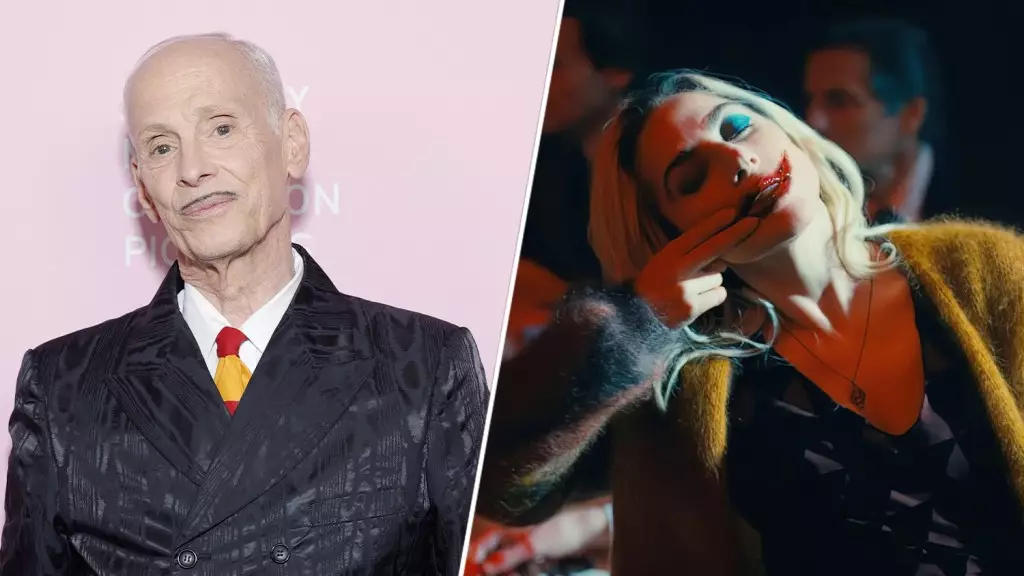John Waters, the unabashed provocateur and celebrated cult filmmaker, has made headlines once again with his unapologetic stance on the recently released and critically maligned sequel, *Joker: Folie à Deux*. Known for his avant-garde taste and audacious commentary, Waters’ take on the film, despite its lukewarm critical reception, speaks volumes about his willingness to challenge mainstream opinions. While many critics have declared the sequel a failure, Waters boldly labeled it a “well-directed” venture. His accolades for Lady Gaga’s performance shine a light on the evolving complexities of contemporary cinema, emphasizing his belief in the film as an expression of authentic emotion rather than purely commercial gain.
In his recent reflections featured in a Vulture Top 10 list, Waters asserts that *Joker: Folie à Deux* finally delivered “a love story I can relate to.” His exuberance is intertwined with an evocation of cinematic lineage, likening the movie’s blend of chaos and vision to an amalgamation of Elvis Presley’s era and the bombastic flair of Busby Berkeley. With phrases that dance between the profound and the absurd, Waters invites audiences to rethink their perceptions of what makes a film good or bad. His vivid imagery—”so insane, so well thought out”—suggests an affinity for narratives that transcend immediate rationality, pushing boundaries through artistic expression.
Despite Waters’ high praise, the reality for *Joker: Folie à Deux* is starkly different. The film has faced the brunt of criticism, accumulating a mere 32% on Rotten Tomatoes and falling short at the box office with a global gross of $206 million against its $190 million budget. This conflicting reality begs an essential question: how do legacy figures like Waters navigate and alter public discourse surrounding ostensibly ‘failed’ cinematic endeavors? By challenging the status quo, Waters resurrects the notion that film, at its core, can serve as a mirror reflecting diverse experiences rather than adhering strictly to the capitalist metrics of success.
Waters’ cinematic preferences in his Top 10 list extend beyond *Joker* to include a vibrant tapestry of films that defy conventional storytelling norms. At the pinnacle is *Love Lies Bleeding*, which Waters describes as a bloody, hysterical film noir, likening it to the wild creativity of Russ Meyer. His commentary suggests that films should provoke visceral reactions, whether through shock or laughter, reaffirming his belief in the transformative power of cinema.
Moreover, his thoughtful critique of Luca Guadagnino’s adaptation of William S. Burroughs’ *Queer* further showcases his appreciation for radical storytelling and the expanding horizons of queer representation in films. The juxtaposition of sexual politics with cinematic innovation in his commentary urges filmmakers to venture beyond safe narratives and explore the edges of their creativity.
Waters encapsulates his artistic ethos with a mischievous playfulness that invites others to delve deeper into the medium of film. By writing about unexpected cinematic experiences like *The Rocky Cartel Horror Picture Show* and giving nods to emerging talents like Nicole Kidman, he heralds a new era of creativity where all genres, tones, and characters have a rightful place on screen. His relentless encouragement for filmmakers and audiences alike to embrace unconventional narratives and styles paves the way for a richer, more diverse cinematic landscape.
John Waters stands as both an homage to the promising eccentricities of cinema and a clarion call for innovation within the industry. Through his critiques and accolades, he urges the film community to treasure the unpredictable, celebrating the audacious art that pushes boundaries and redefines how stories are told.

